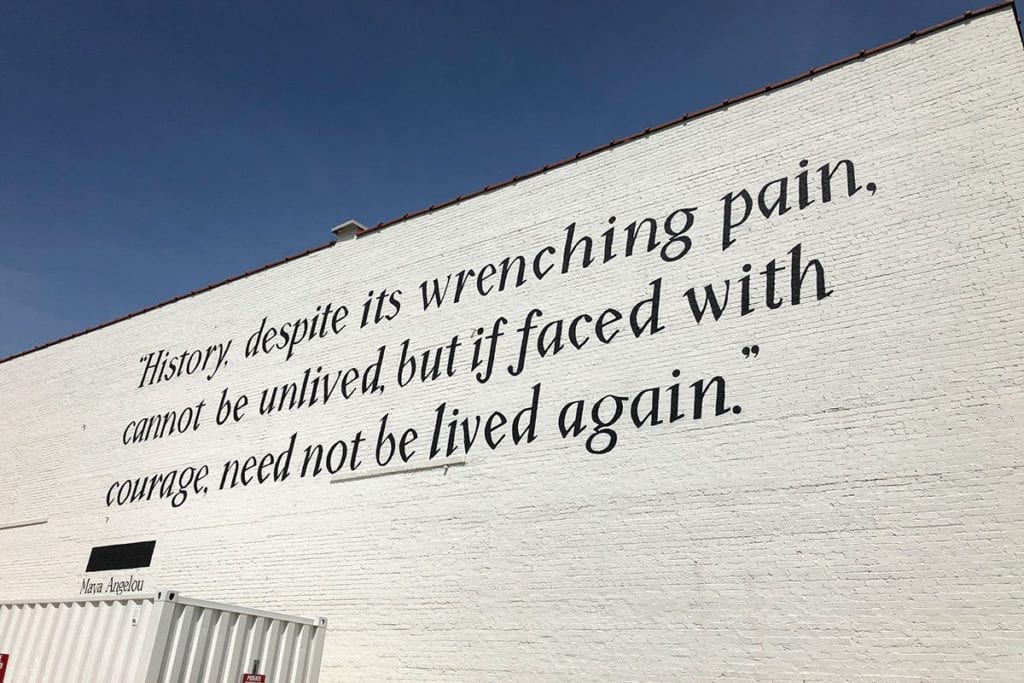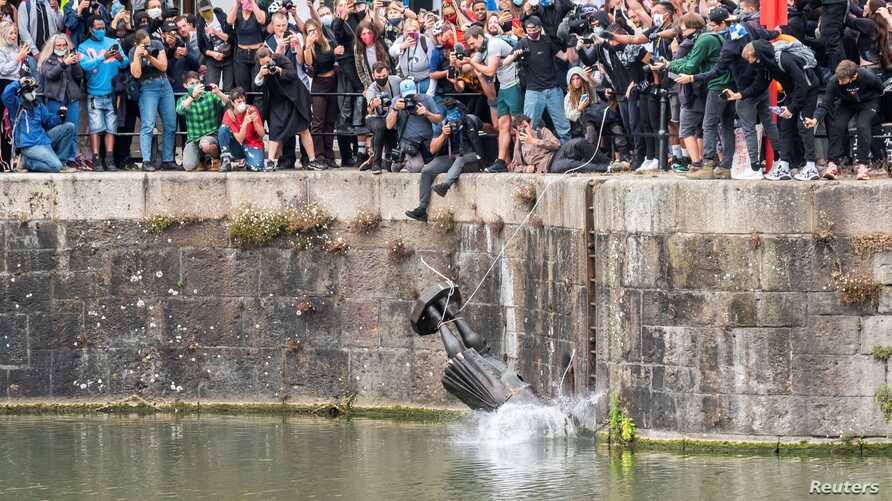By Catie Crandell
The Humanities Council’s Magic project “Reckoning: Complicated Histories and Collective Identities,” will encourage students to question practices of heritage and history making.
Tiffany Cain, an anthropologist in the Society of Fellows in the Liberal Arts, was inspired to teach on the topic of reckoning with the past during a trip to the Equal Justice Initiative’s Legacy Museum: from Enslavement to Mass Incarceration in 2016 (then a small in-house exhibit space based on the work of their Community Remembrance Project). Cain quickly realized two things during that visit. First she reflected that, in her opinion, it was “the most important museum space to be made in the country. Ever.” Second, she was surprised that it took a legal advocacy organization to do the work of engaging this traumatic collective memory.
The Equal Justice Initiative (EJI) is a nonprofit organization that provides legal assistance to marginalized groups—especially the poor, the incarcerated, and the condemned—in order to combat racial and economic injustice. As a self-described ‘heritage practitioner,’ Dr. Cain draws from anthropology and history to do precisely the work that EJI was performing in creating the museum: helping people to engage with historical violence and how it shapes cultural and political consciousness today. Or, to use her own words, “operationalize public history to meet social justice needs.”
As a newly-appointed Cotsen Postdoctoral Fellow in 2019-2020, Cain had already planned to teach “Making History: Monuments, Memorials, and Cultural Heritage” in the Spring of 2020. Students visited the Princeton Art Museum and the Double Sights memorial and were scheduled to independently explore a third heritage site before the turns of events in Spring 2020 threw a wrench in those plans. But the pivot to online learning coincided with the explosion of events across the political landscape that raised precisely the questions “Making History” was designed to tackle.

From the removal of Woodrow Wilson’s name from Princeton’s School of Public and International Affairs and a residential college, to the public awareness that the BLM movement has raised about monumentality, the current moment presented much fodder for conversation. Students examined current events and linked them to discussions of the power of monuments. They analyzed digital spaces rather than physical ones, exploring the websites of everything from the Anne Frank Museum to a cowboy museum in the Southwest, all the while taking stock of how acknowledgement of heritage can be linked to liberation.
As she was developing that course, Cain discovered the Humanities Council’s Magic Grant program and proposed an additional course, “Reckoning: Complicated Histories and Collective Identities,” that would take students to precisely the museum that inspired her thinking about museums, monuments and collective memory.
“A major aim of all my courses is to help students think about their role in the politics and practices of heritage and history making,” explained Cain, who readily admits that the experience of in-person engagement lies at the heart of that process.
No longer able to teach in person, let alone travel to the museum’s home in Montgomery, Alabama, the “Reckoning” course Cain planned to teach in the coming Spring, has had to be postponed to Fall 2021 in the hopes of involving students in the immersive “dream course” she’s planned.
While the extraordinary events of 2020 provide a perfect backdrop for Cain’s research and teaching, they are not anything new; as Cain puts it, “though we’ve recently been watching Christopher Columbus fall all over the world, people have been attacking racist statues for a hundred years. Recent events have just opened up a space for important public conversations.”

One such conversation, a webinar titled “As the Statues Fall: A Conversation about Monuments and the Power of Memory,” brought together scholars and artists, including Cain, to discuss how protestors who have torn down confederate statues created an impact that has led to important conversations about the reconfiguring of historical markers and the removal of imperialist and colonialist monuments across the globe.
In other words, we are slowly approaching one of Cain’s goals that people “not walk through the world oblivious to the ways that these things impact our lives.” What this moment has shown, though not for the first time in history, is that it is crucial for all people, not just academics, to consider museums and monuments and heritage. And that seems to be coming true.
“Whatever is happening right now,” reflects Cain, “I’m just glad that people are starting to listen. We’re thinking about what we’re willing to legitimate in public spaces, what we’re willing to teach our children.” It’s that thinking, in Cain’s understanding, that lays the groundwork for change.
Read the full list of 2020-2021 Magic Projects here.
















